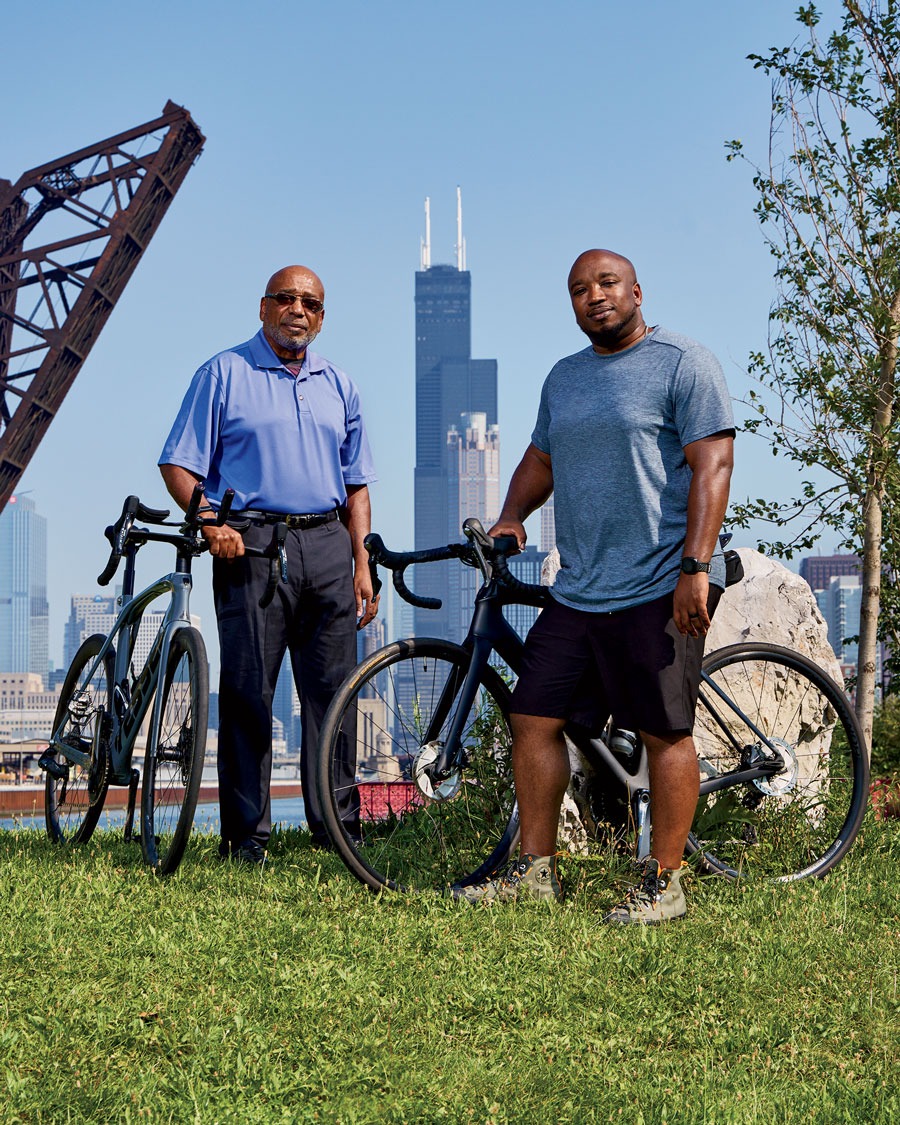When local filmmaker Eric D. Seals set out to chronicle his father Donnie’s transformation into a biking enthusiast late in life, he thought he was going to tell a simple inspirational tale. But the Wheaton native soon found himself capturing more than his father getting in better shape. His documentary Bike Vessel plumbs themes such as the chronically poor health conditions of Black men and the bond between father and son.
“As I was filming his story, I realized I was foretelling the future of my own story,” says Seals, 37. “There are so many things we have in common. That also means that we could have some of the same health issues. I started looking at my physical build, at how I was eating, and really questioned: How am I telling the story of this man who was 68, 69 years old at the time, who is changing his life, and I’m not doing the same for myself? It became a journey for us together.”
Just as vessels — arteries and veins — carry blood through the body, bikes became lifelines for the two Seals men. The film premieres at the Chicago International Film Festival, running October 11 to 22.
Q: Why did you decide to document your father getting into biking?
A: It didn’t start off as a film. My wife challenged my dad to a tennis match. I thought, This will be an incredible thing to film, because she’s going to beat him up and we will need receipts. After that, I showed him the footage and he was super distraught. Yes, he lost. But it wasn’t just that — he saw how out of shape he’d gotten over the years. Literally the next day, he went out and bought a bike, very impulsively. Over time I filmed him more and more. It just organically happened.
Q: Your dad’s health motivated him to start cycling. But what compelled you to join him?
A: When he gets into something, it’s natural for me to get into it as well. We are very close — we talk three or four times a week. All the conversations shifted to bikes and cycling. The more I heard him talk about it, I thought, Let me see if I can get me a little bike. I bought the cheapest one I could buy off this website, then started riding with him. The competition set in because we are competitive with each other. We decided to ride our bikes from St. Louis to Chicago on one of the most historic routes in the United States: Route 66. We got to see all the parts of Illinois, the good, the bad, and the ugly, which represents all of America to some degree.
Q: Black fathers are so often portrayed in films as being missing from family life. Why was it important for you to tell the story of your relationship?
A: That’s another thing that happened organically. When I put the first cut of the film together, it was more about my dad. Someone shared with me that their favorite parts were seeing us interact — for the good and the bad. Then I started to build the film around our relationship, because it is the most compelling part. Another important aspect was showing Black love and Black family and how we navigate through middle-class white America. Whenever we see Black stories, they are usually attached to trauma. We know there is much more to our
lives than that.




